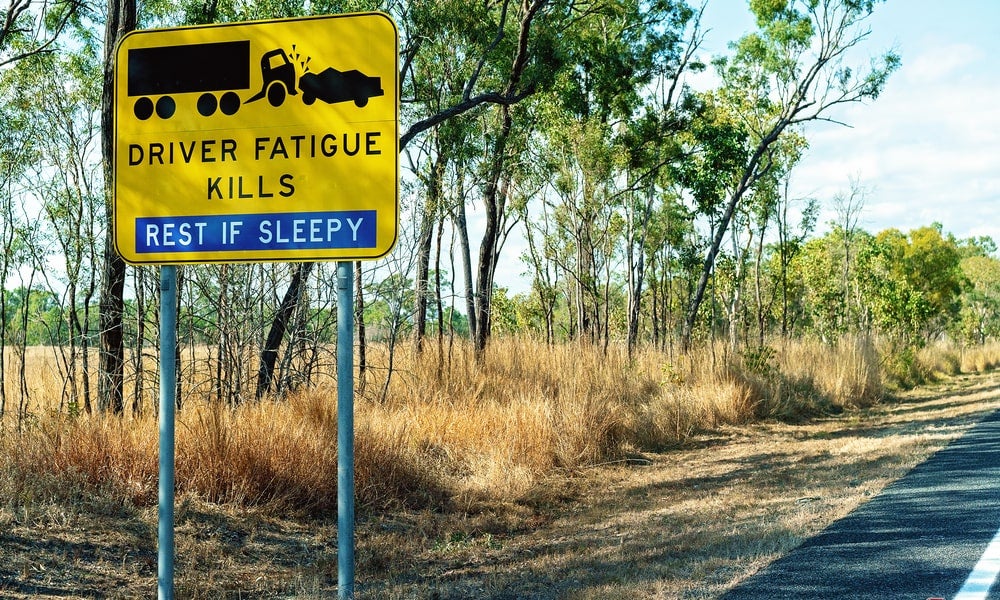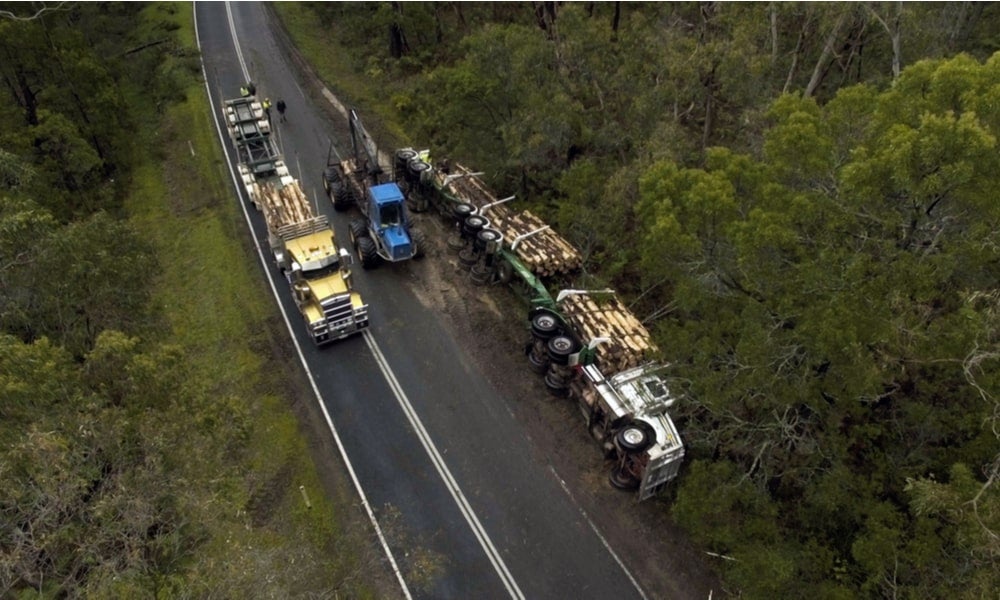Eight ways to improve safety in the road transport industry
The government must address issues around performance-based payment and subcontracting in the road transport industry if there are to be meaningful safety improvements in the sector
The road transport industry consistently records some of the highest fatality, injury and workers’ compensation rates in Australia, and UNSW Business School Emeritus Professor Michael Quinlan said it is high time underlying causal issues were addressed.
“There is now published research stretching over 40 years dealing with the relationship between payment systems/levels, subcontracting and an array of OHS outcomes in the road transport industry. This research has, with few exceptions (as would be expected), repeatedly pointed to an association between performance-based payment regimes and poor OHS outcomes, including crashes, injuries, drug-use, hazardous behaviour and the like,” said Prof. Quinlan.
He recently spoke as part of an Australian Senate Inquiry examining matters concerning the Road Transport industry’s economic sustainability and presented a submission on the need for more effective preventive measures on the part of the government and regulators as well as the social and economic impact of road-related injury, trauma and death.
Road transport has the highest incidence of work-related fatal traumas of any industry. It accounts for 2 per cent of the Australian workforce, however, Safe Work Australia has found it accounted for 17 per cent of work-related fatalities in 2015 and 4 per cent of serious workers’ compensation claims in 2014-15 alone.

Furthermore, between 2003-15, there were 583 work-related fatalities in the road transport industry, with 92 per cent (535) occurring in the road freight transport industry – which has led to road transport being considered a national priority under The Australian Work Health and Safety Strategy 2012–2022.
What the research says
In researching links between pay, subcontracting and safety in the trucking industry, he reviewed 20 papers in refereed journals, three PhDs and one refereed conference paper, and of those, 15 papers dealt directly with a connection.
“All of those studies found that there was a connection between pay, reward systems and safety,” said Prof. Quinlan, who noted this is not a unique relationship – as there have been connections established between pay and safety in other industries. “This makes denial that there is a connection particularly surprising. However, the evidence in trucking is now quite substantial.”
In examining the research, Prof. Quinlan said distance-based rates of pay in the road transport industry are associated with the poorest safety performance, while piece-rate compensation methods are also associated with higher levels of fatigue-related driving than non-piece-rate methods. Furthermore, there is higher caffeine and amphetamines use among piece-rate drivers for the purpose of staying awake while driving.
Read more: Subcontracting and sweatshops during coronavirus – the wake-up call businesses need?
Prof. Quinlan also referenced UNSW Sydney research which confirmed the importance of ensuring that drivers are paid for all hours worked, regardless of the task or activity.
Drivers not paid for all hours can tend to make up for their loss by working extra hours or extra jobs, and importantly, if they are paid on the basis of productivity, the researchers found they may be more likely to take risks such as speeding and driving long hours.
“Clearly, one thing we need to do is effectively regulate the supply chains and also ensure that there is a reasonable level of pay in the industry, irrespective of employment status, so that owner-drivers get a reasonable return and small companies are not squeezed, and the competition between owner-drivers and the employee drivers doesn't lead to a race to the bottom with significant adverse effects on health and safety,” said Prof. Quinlan.
“In my view, that would make a more sustainable industry, make trucking a more attractive career and service the regional sector much better.”

Eight important factors for improved safety
Prof. Quinlan said there are eight important factors which must be addressed if the road transport industry is to become safe, sustainable and more efficient:
1. An enforceable minimum award rate and sustainable standards and conditions for all stakeholders in the road transport industry;
2. The development and maintenance of road transport infrastructure to ensure a safe and efficient road transport industry;
3. Regulatory impact, including the appropriateness, relevance and adequacy of the legislative framework, on all stakeholders in the road transport industry;
4. Training and career pathways to support, develop and sustain the road transport industry;
5. The full social and economic impact of road-related injury, trauma and death should be recognised;
6. Efficient cost-recovery measures for industry stakeholders, including subcontractors;
7. The impact of new technologies and advancements in freight distribution, vehicle design, road safety and alternative fuels; and
8. Establishing a formal consultative relationship between the road transport industry and all levels of government in Australia.

Calculating the cost of road-related injury, trauma and death
In presenting to the Senate Inquiry, Prof. Quinlan also said the impact of work-related fatalities and serious injuries on families has been subject to little research. However, recent research, which factored in transport workers’ families, indicates the effects of traumatic work fatalities are profound and long-term.
The families of self-employed drivers are especially vulnerable, and the research found that families have a number of clear needs with regard to such incidents which could and should be addressed. The research, Death at work: Improving support for families (which was conducted by a number of academics including Prof. Quinlan) found that of the 12 to 20 people on average who are affected by a workplace fatality 61 per cent experienced post-traumatic stress disorder, 44 per cent experienced major depressive disorder and 42 per cent experienced prolonged grief disorder.
Partners, children and parents are especially affected, and Prof. Quinlan said these effects are long-term and include emotional suffering/mental health, physical health, financial hardship and diminished education and prospects for children.
"If there’s a breach of legislation they want timely prosecution with significant penalties that will act as a real deterrent"
MICHAEL QUINLAN
“Trucking is one of the most dangerous occupations and the impacts on families are profound,” said Prof. Quinlan. “The financial impact is especially acute for the families of self-employed workers like owner-truck drivers because they cannot access workers’ compensation entitlements. Families of these workers find this galling and unfair.”
The research also found that impacted families want clear, comprehensive and timely information on how and why death occurred. “They do not want the deceased to be objectified in legal proceedings, but to use the workers’ names,” said Prof. Quinlan.
“They want identification of responsibility. If there’s a breach of legislation they want timely prosecution with significant penalties that will act as a real deterrent. Last, and most importantly, they want remedial measures taken so that other families do not experience that sort of tragedy. They want effective preventative action.”
Dr. Michael Quinlan is Emeritus Professor in the School of Management and Governance and Former Director of the Industrial Relations Research Centre. His major expertise is the field of occupational health and safety and risk, with a focus on work organisation, management and regulation.
